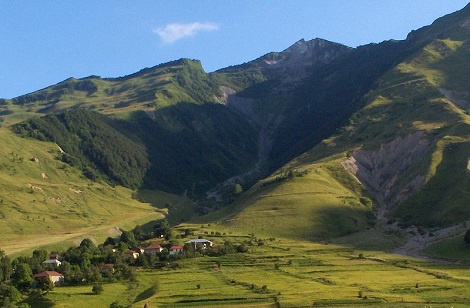Village support program launched across Georgia

Residents living in Georgia’s village communities are being urged to stand up and let their voices be heard through community meetings led by the Government’s Rural Support Program.
Georgia’s Minister of Regional Development and Infrastructure Davit Narmania officially launched the program today. He said the program would begin in villages on February 26 and continue until March 6.
During this time there will be numerous community meetings where village residents can voice their opinions, authorities can listen and village priorities can be developed from the discussions.
Narmania’s comments follow an earlier announcement stating the Government had approved a 50 million GEL program to support Georgian villages.
Each village will be allocated at least 2,000 GEL however the total amount depended on the number of village inhabitants, Narmania announced on February 20.
Today, Narmania said before work could begin on specific projects, residents must submit their priorities in order for the Government to grant each village a percentage of the 50 million GEL allocated to the scheme.
Narmania said the local self-government was obliged to lead the community meetings and in turn, the village trustees were obliged to inform the public about the meeting date and venue. Meeting dates and times had already been appointed, he said.
The Minister urged local media and non-governmental organisations to engage in the community meeting monitoring process.
Earlier this year, the Government adopted a resolution on the Village Support Program, under Article 19 of the Law "About the 2014 State Budget".
As part of the project 50 million GEL will be allocated from the state budget to implement various projects in villages, including infrastructure, water supply, road reconstruction and other repair work.
To enhance the effectiveness of the program, the project envisaged the following novelties:
- Spending of the allocated funds must only be used for the construction and rehabilitation of local infrastructure and amenities, for equipment of buildings for general use and procurement of long-term use equipment. With respect to the needs, such as historical monuments, social/cultural and religious facilities, to purchase of rural - agricultural goods and services, they are funded through special state programs.
- The proportion of the villages with small numbers of families is significantly increasing, particularly in mountainous regions, and funding of such villages has increased. This change will allow these villages to improve infrastructure and to promote job creation in rural areas. And as a result of this, the undesirable migration processes will slow down.
All works identified in the program will be completed by the end of 2014. Narmania said this would help increase responsibility of the people who were working on the program and the results of the program would become more significant for the rural population.
 Tweet
Tweet  Share
Share